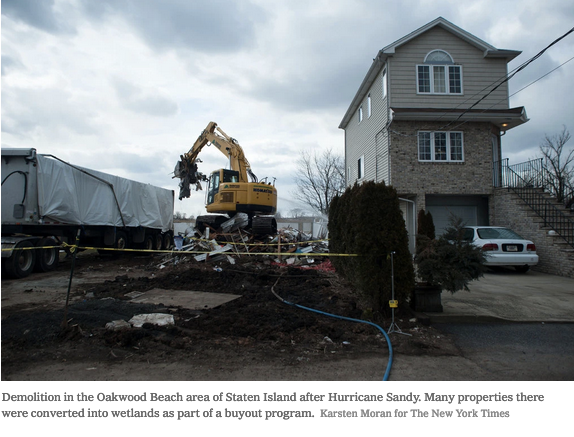What should communities do as climate change escalates threats like sea-level rise?
Until now, much of the focus has been on disaster response, with very little discussion of orderly, strategic retreat from areas at risk. After Hurricane Sandy in 2012, for example, the New York State governor’s office ran a public service announcement that made clear the focus would be on rebuilding.
But a paper published Thursday in the journal Science makes a case that, sometimes, retreating from nature instead of fighting it can actually open up new opportunities for communities.
“There’s a definite rhetoric of, ‘We’re going to build it back better. We’re going to win. We’re going to beat this. Something technological is going to come and it’s going to save us,’” said A.R. Siders, an assistant professor with the disaster research center at the University of Delaware and lead author of the paper.
“It’s like, let’s step back and think for a minute,” she said. “You’re in a fight with the ocean. You’re fighting to hold the ocean in place. Maybe that’s not the battle we want to pick.”




